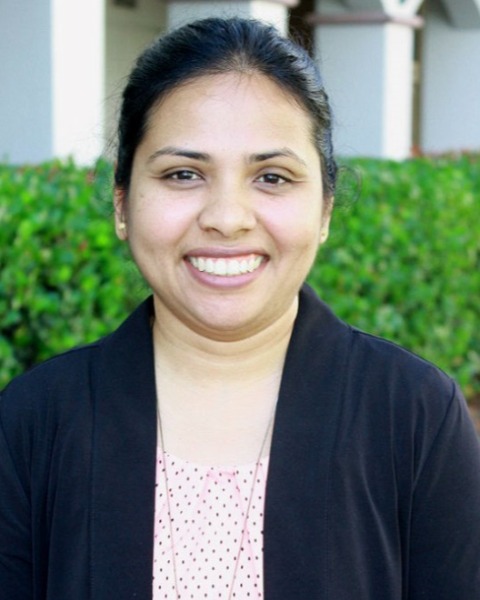Poster Presentation
Social Justice and Health Equity
Thursday Poster Power Hour
THURS-001 - Examination of Health Knowledge and Self-efficacy Among Haitians and Latinos in Southwest Florida
Thursday, April 17, 2025
11:45 AM - 12:45 PM PST
Location: Pacific I/II, 2nd Floor
Area of Responsibility: Area IV: Evaluation and Research
Subcompetencies: 4.4.1 Explain how findings address the questions and/or hypotheses., 4.3.6 Analyze data.
Research or Practice: Research
Subcompetencies: 4.4.1 Explain how findings address the questions and/or hypotheses., 4.3.6 Analyze data.
Research or Practice: Research

Payal Kahar, MPH, PhD
Associate Professor
Florida Gulf Coast University
Fort Myers, Florida, United States
Poster Presenter(s)
Learning Objectives:
At the end of this session, participants will be able to:
- Examine the differences in how Haitian and Latino immigrant groups respond to health (pre and post) knowledge and self-efficacy (nutritional and physical exercise) items on the health survey?
- Examine the differences on how the two immigrant groups respond to health survey based on demographic and clinical measures?
- Examine the effectiveness of health presentations on knowledge levels in immigrant groups.
2. Examine if the responses on the health survey are different for the two immigrant groups based on demographic and clinical measures?
Detailed abstract description:
Background: Given the high burden of chronic diseases in minority groups and the impact of low levels of health knowledge and self-efficacy on chronic disease prevention and management, the purpose of the study was to examine the socio-demographic and health differences between Latinos and Haitians in a Florida migrant community while also examining the effectiveness of health presentations on knowledge levels, nutritional, and physical activity self-efficacy.
Methods: Hour-long health presentations in either Creole or Spanish with health screenings were provided at six faith-based and one community-based organizations in a community in Southwest Florida. Recruitment was done at the churches through flyers and mord-of mouth. Data on socio-demographic variables, pre-knowledge, post-knowledge, self-efficacy scores with nutrition and physical activity were collected during health events. Chi-square test and MANOVA were used to examine the group differences and to examine interactions between variables.
Results: The convenience sample for this study had a total of 152 Haitians and 128 Latinos. More Latino participants were younger and employed than Haitians (35-54 years and 55 years and above), who had immigrated to the U.S. at a younger age. A multivariate ANOVA yielded a statistically significant difference in the mean scores for Haitian and Latino groups for Pre-knowledge scores (F (1, 284) = 21.78; p < .001; partial η2 = .071), Post-Knowledge scores (F (1, 284) = 26.861; p < .001; partial η2 = .086), and nutritional self-efficacy (F (1, 284) =11.46; p < .001; partial η2 = .039) but not physical activity self-efficacy. There were statistically significant improvements in health knowledge as measured in post-knowledge scores for both Haitians (p <.001) and Latinos (p <.001) respectively. There was a significant association and medium to large effect of ethnicity with age, work status, level of education, age at immigration, having health insurance, and measured blood pressure.
Conclusions: A significant difference in the knowledge scores and nutritional self-efficacy for Haitian and Latino groups suggests that socio-demographic factors like age at the time of immigration, health insurance as a proxy for health care access and health-related differences in cholesterol levels, blood pressure may be contributing factors and need to be further investigated. Additionally, the study demonstrated the effectiveness of health presentations with the leadership and collaboration of faith-based organizations in improving health literacy levels in migrant groups .
